The winter season is fast approaching, and so is the elevated risk of enduring winter sport injuries. While the snowy season makes for the best of activities Canada has to offer, it’s important to follow proper precautions in order to make the experience danger free. The bountiful mountains, great lakes, and chilled climate has cultivated a nation full of winter sport enthusiasts.
According to World Atlas, Ice Hockey is Canada’s most popular sport. There has even been petitions nationwide to try and change the national sport from lacrosse to hockey.
But it doesn’t stop there, sledding, skiing, snowboarding and snowmobiling are among the top recreational activities enjoyed by Canadians during the winter season.
Whether you’re hitting the rink, trails, mountain tops or the slopes, it’s important to follow certain safety measures. We put together a guide of general safety tips that can be applied to almost every outdoor activity, the top injuries per sport and how to prevent against them.
At the same time, we also realize that sometimes these injuries aren’t always a result of improper safety precautions. Sometimes someone else is to blame for the injuries you suffered. We are here to help you figure out who is liable and what your options are in terms of compensation.
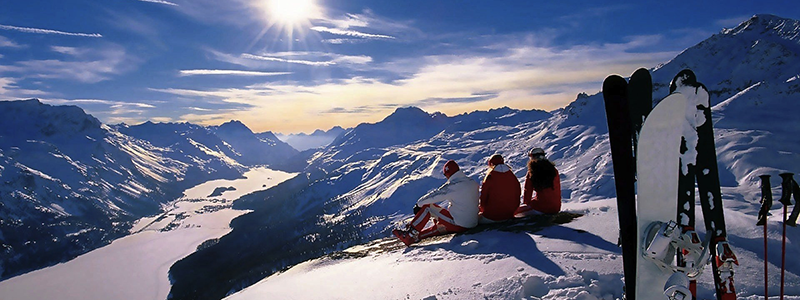
General Safety Tips
For those just starting off, here are some general guidelines to follow prior, and during the sport.
1. Warm Up
Cold muscles, tendons and ligaments are more susceptible to suffering an injury. Taking anywhere between 10 minutes to a half hour time frame to do simple body conditioning warm up exercises is beneficial. This will get your blood pumping and increase your overall bodily temperature.
This safety tip also goes hand in hand with the importance of maintaining good cardiovascular health. Being in better shape puts you way lower down the risk of suffering an injury.
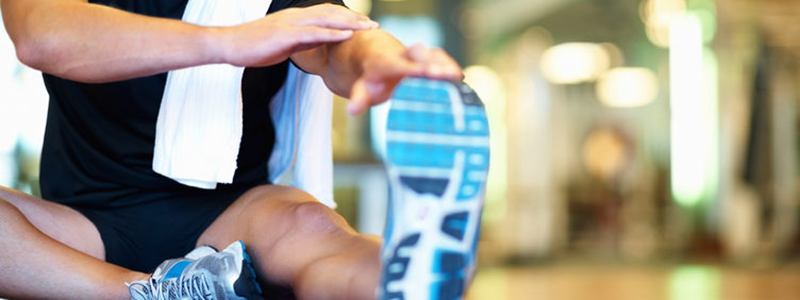
2. Take A Lesson
While you might like to think you can master the sport in one go, it would be beneficial to your overall safety to seek some help before you step out there. Learning from a qualified instructor will ensure you are well versed on how to remain safe and get the most fun out of your experience.
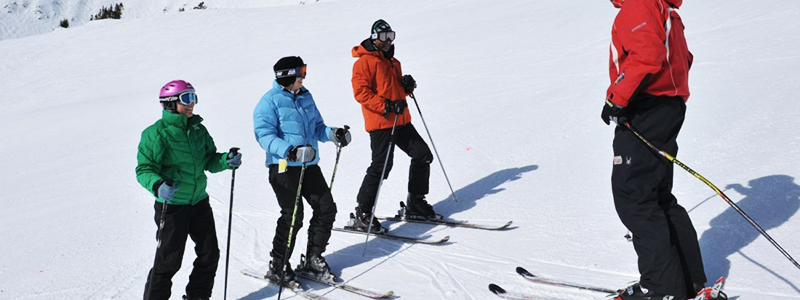
3. Wear The Appropriate Gear /Clothing
You’ve heard the phrase “layer up.” This notion applies in winter sports more than ever. It’s important to wear lots of light, loose, waterproof layers that you can switch up depending on your body’s temperature. Wearing lots of layers will also keep you warm on the hills and slopes.
It’s also important to gear up properly for the sport you’re playing. This means making sure equipment is the proper size, tightened properly and isn’t restricting in any way. Proper footwear and gloves are a given to protect against frostbite.
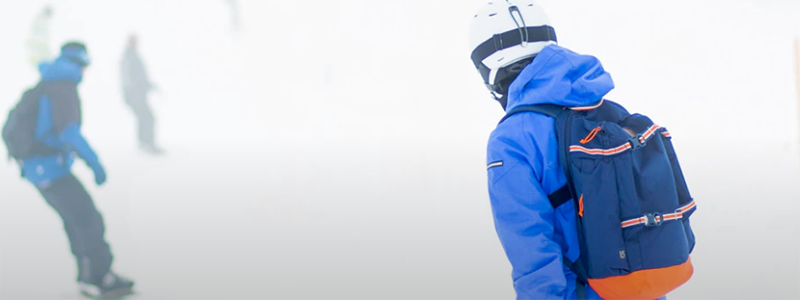
4. Stay Hydrated
This safety tip is important to maintain before, during and after the physical activity. In the winter your sweat evaporates faster in the dry, cold air. This results in dehydration. We lose more fluids through respiratory water loss than on a warmer day, making the body more prone to dehydration in the winter months. Keeping bottles of room temperature water on hand is a simple solution to this problem.

5. Listen To What Your Body’s Saying
It’s important to stay alert to the signal your bodies sending and don’t push it to the limit. If you sense pain, stop what you’re doing. If you’re feeling tired, take a break or stop. Most injuries occur at the end of the day due to fatigue.
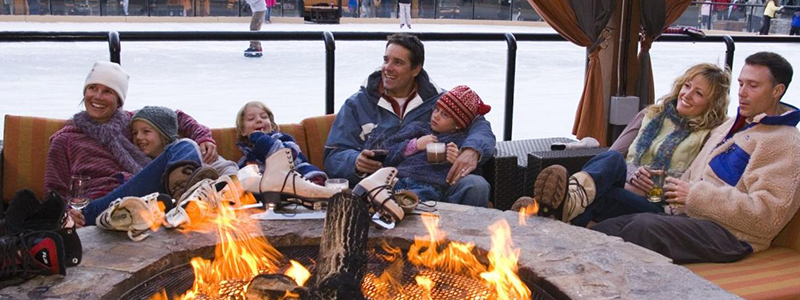
Top Injuries Per Sport
Ice Hockey
Concussions
Broken/Dislocated Bones
Pulled Muscles/Ligament Tears
Broken teeth
It’s important to ensure all gear and equipment is on properly before heading out on the rink. The number one equipment to check is your helmet. Concussions are at an all time high. It’s also important to go over the rules of the game before beginning. High sticking and checking from behind are dangerous moves.
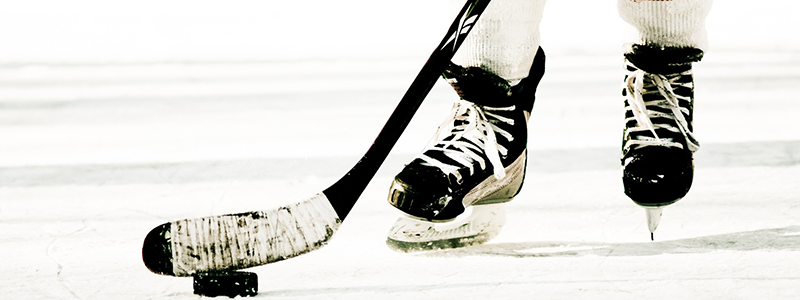
Skiing/Snowboarding
Knee Sprains/Ligament Tears
Wrist Sprains/Fractures
Concussions
Shoulder Dislocation
One of the most important safety tips when hitting the slopes is knowing how to properly fall down. When falling it’s important to remain calm and not use your arm to break your fall. Buying wrist braces is recommended in case this occurs to reduce breakage. Testing out your bindings to make sure they’re fitting properly is key to do before you head out. Another helpful tip is to stick to trails you’re familiar with and also have a buddy with you.
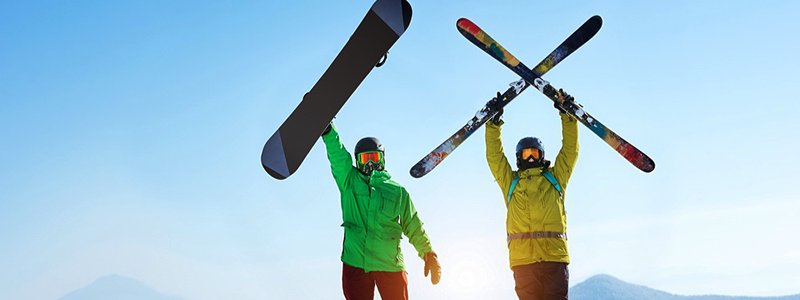
Sledding
Concussions
Broken bones
The majority of sledding injuries are a result of collisions into objects on the path or with other riders. Avoiding sledding face-first on your stomach to avoid the severity of a potential impact. Instead, sit in a forward-facing position. It’s also important to glance at the hill before you go down and scan for any obstructions in your path.
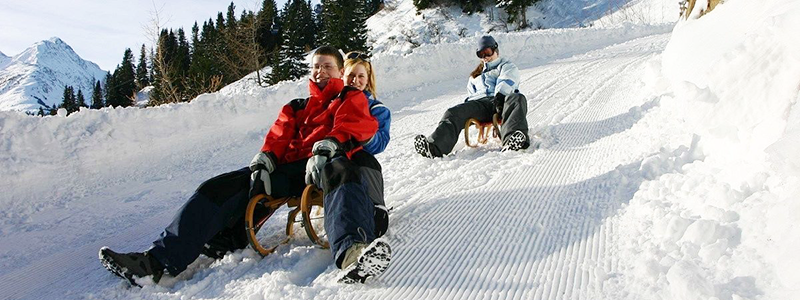
Snowmobiling
Broken/Sprained/Fractured Bones
Large Cause Of Death
Snowmobiling is the most dangerous winter sport because it’s a motor powering vehicle. It’s important to follow the specific laws and safety tips that demonstrate how to properly operate your vehicle.
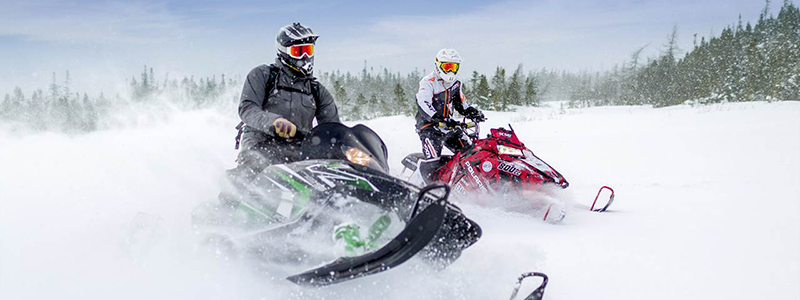
Conte & Associates is Here to Help Get You The Settlement You Deserve
We want you to have a fun time enjoying your favourite winter sports. But injuries can happen at any time. Even to the most experienced.
At Conte & Associates, we want you to be prepared in case you’re injured out there. We also want to acknowledge the fact that from the ski hill to to the ice rink, sometimes your injuries are a result of someone else’s actions.
We work with the most experienced medical professionals in Ontario to build the best team on your side. This helps us make sure you get the settlement you deserve and the compensation you need to continue living your life.
Contact our personal injury offices in Whitby and Vaughan for your free consultation!





